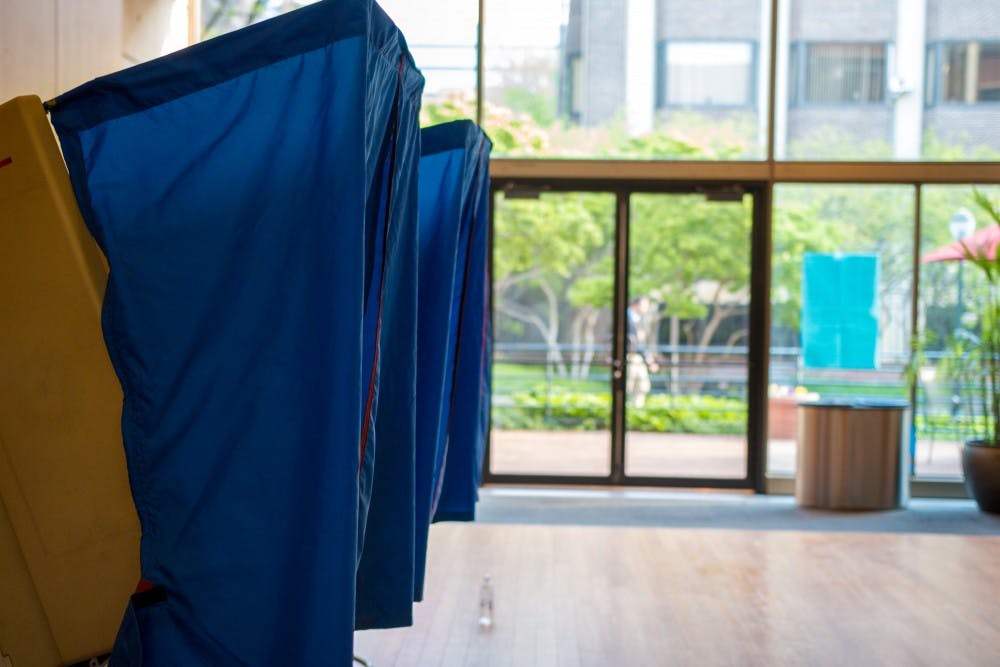
The 2016 election results came as a shock to many. Going into the night, it seemed as though Hillary Clinton was more than likely to win. As Donald Trump took more and more electoral votes, however, people began to feel betrayed by the polls.
These people “did it to themselves,” Wharton marketing professor J. Scott Armstrong said.
He said people should be looking at combined forecasts, which include multiple factors in order to predict outcomes, such as econometric models, political polls, expert opinions, prediction markets and citizen forecasts.
On the website PollyVote, which Armstrong co-created, there is a “PollyGraph,” which depicts the statistical differences between actual outcome, prediction of each individual forecasting method and the PollyVote combined forecast.
Of these methods, Armstrong said that political polls were the worst.
“There has been evidence out for years saying that it has been one of the least accurate methods,” he said.
This is not the first time the polls have been wrong during a presidential campaign. One of the more famous instances is the Chicago Tribune’s preconceived headline, “Dewey Defeats Truman.”
Political science professor Marc Meredith said people are being unfair to the polls.
“What people missed wasn’t so much the polls, but the implications of the polls,” he said.
Meredith said that people did not pay enough attention to states like Minnesota, Wisconsin and Michigan, and even the campaigns ignored them. He said there was likely not enough polling in these states, so people did not see how much this area of the country was going to shift “vis a vis the last election”.
Meredith added that one limitation of polls is that there are people who decide at the last second who they are choosing to vote for, which is something that polls cannot capture.
While Armstrong and Meredith both believe that it was the way in which people relied on the polls that was the root of the issue, Armstrong insists that the public move away from the polls in general. Individual polls, he said, are all over the place. “They are highly unreliable; they are highly inaccurate. Those are known facts,” he said.
Armstrong’s theory is that people consult polls for entertainment because they are always changing, which makes it more fun to watch.
Though the outcome was a shock to the public, it was not totally inaccurate. The political polls predict the voting patterns of the population as a whole, which ended up preferring Clinton.
Meredith believes that Clinton, when the votes are completely counted, will end up with a 2-point lead in the popular vote over Trump.
Another disagreement between the two professors is the role of third-party candidates in the outcome.
Armstrong attributes part of the blame on the question asked by the polls. Many polls asked if participants would be casting a vote for Clinton or Trump, excluding Libertarian New Mexico Gov. Johnson and Green Party candidate Dr. Jill Stein.
He said that at PollyVote, they made this mistake. “If you are looking for errors,” he said, “the bigger [one] was ignoring the other candidates.”
Meredith, however, attributed the role of the third party to a common phenomenon that occurs in election. He said the issue was that many Republican identifiers had expressed support for one of the third-party candidates and ended up backing their party’s nominee on election day.
“I think throughout the campaign, Republicans were supporting Trump at a lower rate than Democrats were supporting Clinton, and from the exit poll, that didn’t seem to bear on election day,” Meredith said.
Whatever the case, the polls are taken to predict the outcome in total, and created an upset among American voters.
“People sometimes mistakenly say what is the most likely outcome is the only outcome,” Meredith said, “and certainly I think that it was not so much a failure of the polls as it is an interpretation of the polls.”
The Daily Pennsylvanian is an independent, student-run newspaper. Please consider making a donation to support the coverage that shapes the University. Your generosity ensures a future of strong journalism at Penn.
Donate







